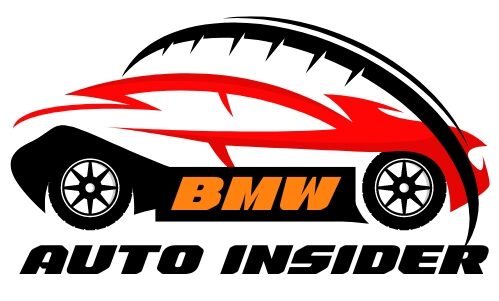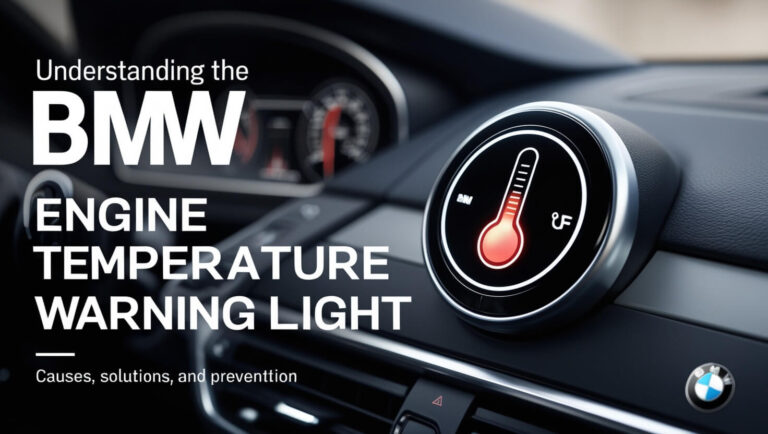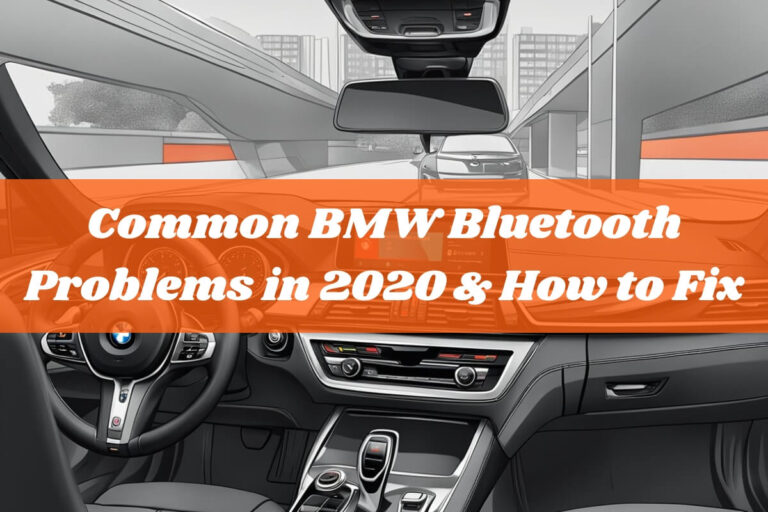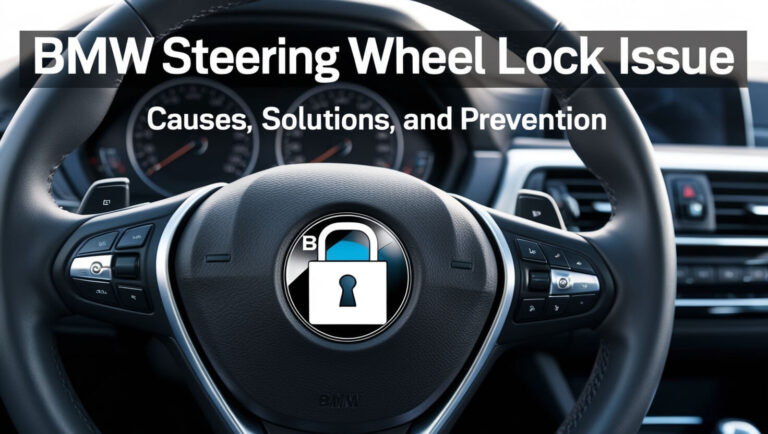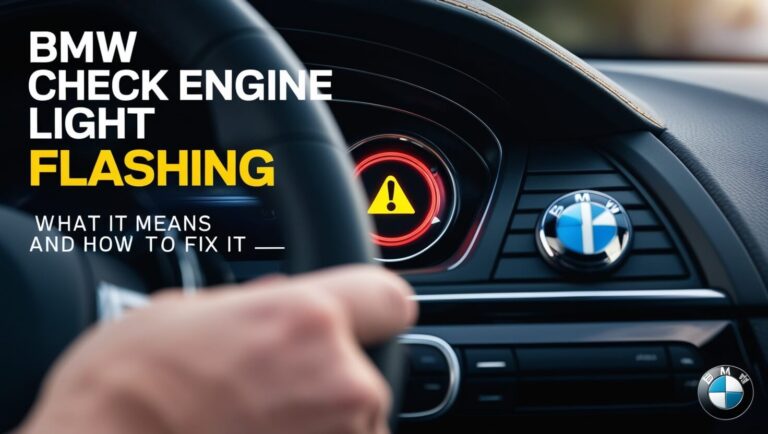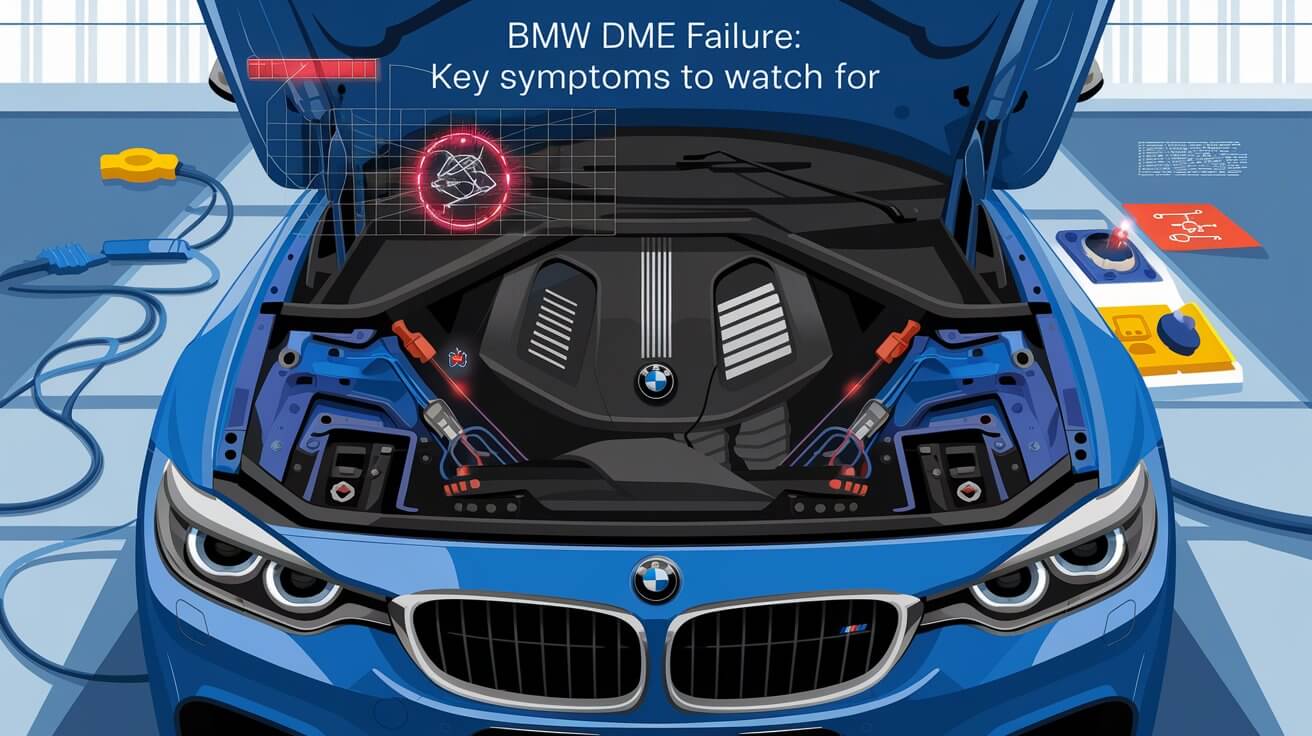
Is your BMW giving you trouble? It might be the DME. When a BMW’s DME fails, you’ll often see warning lights, engine problems, and weird performance. If you want to know more about BMW DME issues – what they look like and how to fix them – keep reading. We’ll tell you what you need to know.
What is a BMW DME?
The Digital Motor Electronics (DME) system is the brain of your BMW’s engine. It’s a sophisticated computer that controls crucial aspects of engine operation, ensuring optimal performance and efficiency.
Function of the DME in BMW vehicles
The DME manages:
- Fuel injection
- Ignition timing
- Emission control
- Idle speed
- Turbocharger boost pressure (in turbocharged models)
It constantly monitors engine sensors and adjusts parameters in real-time to keep your BMW running smoothly.
Importance of the DME for engine performance
A properly functioning DME is vital for:
- Smooth engine operation
- Fuel efficiency
- Power output
- Emissions control
When the DME fails, it can lead to a host of problems that affect your BMW’s performance and reliability.
Common BMW DME Failure Symptoms
Recognizing the signs of DME failure early can save you from costly repairs down the road. Here are the main symptoms to watch out for:
Check Engine Light Illumination
One of the first signs of DME issues is often the check engine light coming on. While this light can indicate various problems, persistent illumination might point to DME failure.
Engine Misfires and Poor Performance
DME problems can cause:
- Random misfires
- Sluggish acceleration
- Reduced power output
You might notice your BMW doesn’t have the same pep it used to, especially when accelerating or climbing hills.
Difficulty Starting or No-Start Conditions
A failing DME can make starting your BMW a challenge. You might experience:
- Extended cranking before the engine starts
- The engine turning over but not starting
- Complete failure to start
These issues often worsen over time as the DME deteriorates.
Erratic Idle and Stalling
DME failure can lead to:
- Rough or unstable idle
- Engine stalling at stops
- Unexpected stalling while driving
These symptoms can be particularly dangerous in traffic situations.
Reduced Fuel Efficiency
If you notice your BMW is suddenly guzzling more gas than usual, it could be a sign of DME problems. The DME’s role in optimizing fuel injection directly impacts your vehicle’s fuel economy.
Transmission Issues
In BMWs with automatic transmissions, DME failure can cause:
- Harsh or delayed gear shifts
- Failure to shift into certain gears
- Transmission going into limp mode
These issues arise because the DME communicates with the transmission control module to coordinate shifting.
Causes of BMW DME Failure
Understanding what leads to DME failure can help you prevent issues in the future:
Water Damage and Moisture Exposure
BMWs are known for their performance, but they’re not immune to water damage. The DME’s location in some BMW models makes it vulnerable to water intrusion, which can cause electrical shorts and corrosion.
Electrical System Problems
Issues with your BMW’s electrical system, such as:
- Voltage spikes
- Poor ground connections
- Faulty wiring
These can all damage the sensitive electronics in the DME.
Age and Wear
Like all electronic components, DMEs can simply wear out over time. Older BMWs are more likely to experience DME failure due to age-related degradation.
Software Glitches
Sometimes, the issue isn’t hardware-related at all. Software bugs or corrupted firmware can cause the DME to malfunction, leading to various symptoms.
Diagnosing BMW DME Issues
Proper diagnosis is crucial for addressing DME problems effectively:
OBD-II Code Reading
Most DME issues will trigger error codes that can be read using an OBD-II scanner. Common DME-related codes include:
- P0600-P0606 (PCM/ECM/TCM related codes)
- P1600-P1699 (Manufacturer-specific computer and output circuit codes)
Professional Diagnostic Tools
BMW-specific diagnostic tools like INPA or ISTA can provide more detailed information about DME function and help pinpoint issues more accurately than generic OBD-II scanners.
Visual Inspection of the DME
Sometimes, DME problems can be identified through a visual inspection. Look for:
- Signs of water damage or corrosion
- Damaged connectors or wiring
- Burn marks on the DME housing
BMW DME Failure Prevention
Preventing DME failure is often easier and less costly than dealing with repairs:
Regular Maintenance Tips
- Keep your BMW’s battery in good condition to prevent electrical system issues
- Address check engine lights promptly
- Follow BMW’s recommended maintenance schedule
Protecting the DME from Environmental Factors
- Park in covered areas when possible to reduce exposure to water and extreme temperatures
- If you live in a flood-prone area, consider relocating the DME to a higher position in the engine bay (consult a professional for this modification)
Repairing or Replacing a Faulty BMW DME
When faced with DME failure, you have several options:
DIY vs. Professional Repair
While some tech-savvy BMW owners might attempt DME repairs themselves, it’s generally recommended to leave this job to professionals due to the complexity of the system.
Cost Considerations
DME replacement can be expensive, with costs ranging from $1,000 to $3,000 or more, depending on the BMW model and labor rates in your area.
Choosing Between New and Refurbished DMEs
- New DMEs offer peace of mind but come at a premium price
- Refurbished units can be a cost-effective alternative but may have a shorter lifespan
- Some specialty shops offer repair services for existing DMEs, which can be the most economical option if available
Frequently Asked Questions About BMW DME Failure
Can I drive my BMW with a failing DME?
It’s not recommended. A failing DME can lead to unpredictable performance and potential safety issues.
How long does a BMW DME typically last?
With proper care, a DME can last the lifetime of the vehicle. However, issues can arise at any time, especially in older models.
Will a new DME need programming?
Yes, new DMEs typically require programming to match your specific BMW model and VIN.
Can a bad DME cause transmission problems?
Yes, since the DME communicates with the transmission control module, DME issues can lead to transmission-related symptoms.
Is it possible to upgrade the DME for better performance?
Some aftermarket companies offer DME tuning or replacement units that can enhance performance, but these modifications may affect your warranty and emissions compliance.
Conclusion
BMW DME failure symptoms can range from minor annoyances to major performance issues. By staying alert to the signs of DME problems and addressing them quickly, you can keep your BMW running at its best. Regular maintenance and prompt attention to warning lights are key to preventing costly DME failures. If you suspect DME issues, don’t hesitate to consult a BMW specialist for proper diagnosis and repair.
Remember, a well-functioning DME is crucial for your BMW’s performance, efficiency, and reliability. By understanding the symptoms and causes of DME failure, you’re better equipped to keep your ultimate driving machine in top condition for years to come.
